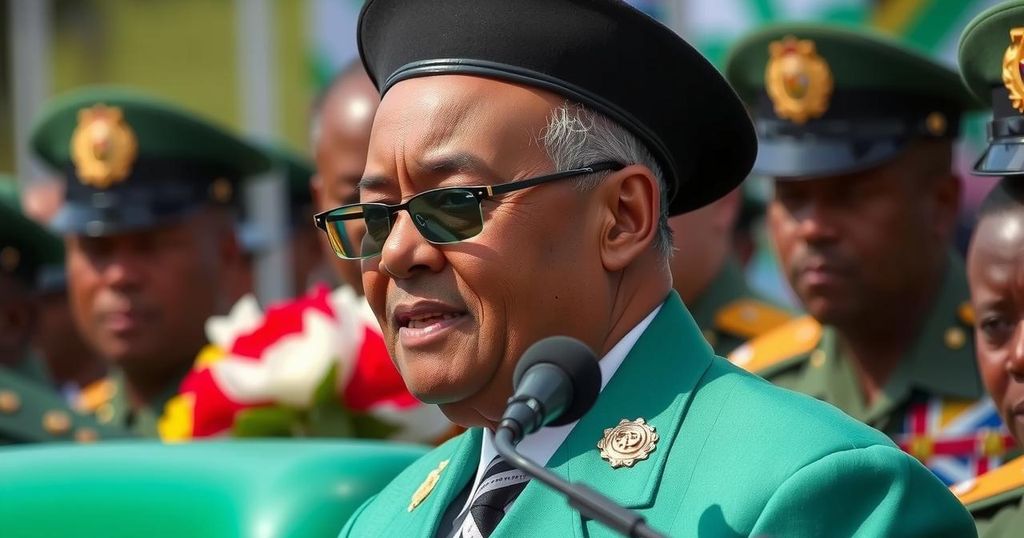Suriname’s government has decided against a state funeral for ex-president Desi Bouterse, who died on December 24, 2024, while evading justice. The Foreign Minister announced that there would be no national mourning despite Bouterse’s past as a leader. Out of respect, flags will be flown at half-staff on the day of his funeral, which has yet to be scheduled.
PARAMARIBO, Suriname — Suriname has officially announced that it will not conduct a state funeral for its former President Desi Bouterse, who passed away on December 24, 2024, while evading justice. Foreign Minister Albert Ramdin articulated the government’s stance during a press conference, emphasizing that President Chan Santokhi made this decision based on his authority and the counsel received. Bouterse, who had a controversial history as a military dictator, had been sentenced to prison for severe crimes including murder and drug trafficking. In a gesture of respect, flags will be flown at half-staff at government buildings on the day of Bouterse’s funeral, although a date for the ceremony has not been confirmed.
Bouterse’s political career was marked by two coups, first in 1980 and again in 1990. After years in exile, he was elected president in 2010 and remained in office for a decade. He died in an undisclosed location, having been a fugitive with long-standing legal judgments against him. Despite his controversial past and convictions, he retained popularity, particularly among the lower socio-economic classes in Suriname. An autopsy has been initiated following his death, with authorities stating there are no indications of foul play. The decision against a state funeral reflects the complex legacy Bouterse leaves behind.
Desi Bouterse was a significant and polarizing figure in Suriname’s history. He first gained power through a military coup in 1980, establishing a regime that would last until 1988 before he lost power but returned through another coup in 1990. After years of living in exile and facing numerous legal challenges, he was elected president again in 2010. His presidency was marked by economic issues, political instability, and ongoing criminal proceedings for grave offenses including drug trafficking and murder related to the execution of political opponents. His death as a fugitive raises questions about his enduring influence and the political climate in Suriname.
The Suriname government’s decision to forgo a state funeral for Desi Bouterse underscores the complexities of his legacy as a leader who wielded power through both military and electoral means. While he faced severe legal repercussions and controversies during his lifetime, his appeal among segments of the population reflects deeper societal divisions. The choice to lower flags in his honor on the day of his funeral signifies a recognition of his status as a former president, despite the absence of a traditional farewell befitting a head of state.
Original Source: www.jamaicaobserver.com






